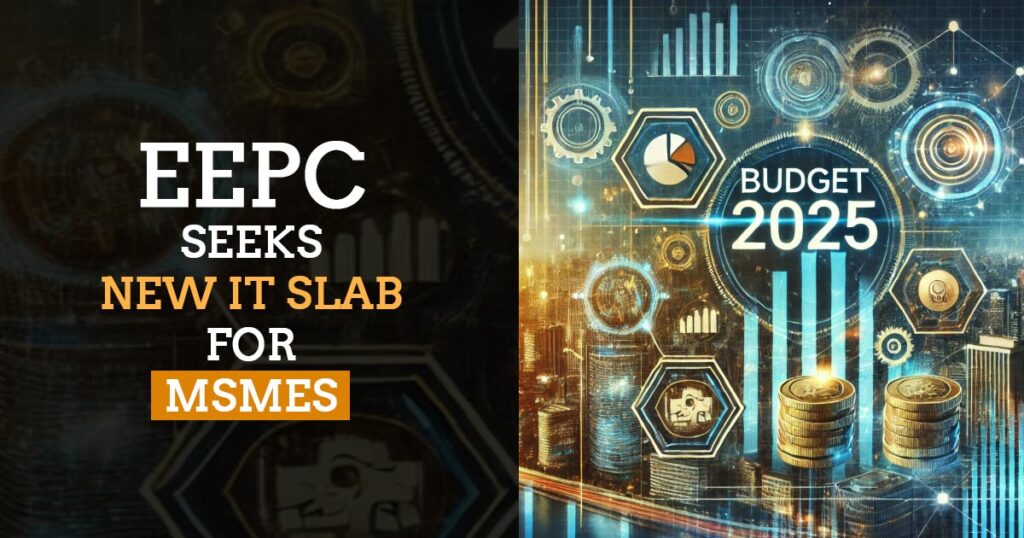
During a pre-budget discussion with Finance Minister Nirmala Sitharaman on December 26, the apex body of the Engineering Exports Promotion Council, EEPC India, suggested the introduction of a 25% conditional income tax rate for MSME manufacturing units operating as partnerships, LLPs, or sole proprietorships.
This proposed tax slab can apply with the condition that businesses reinvest the additional 10% savings, according to EEPC.
EEPC India emphasized that this tax relief could provide MSMEs with extra financial relief, improving liquidity. This will also expand or boost working capital. The resulting growth in MSMEs could, in turn, lead to job creation, the organization stated.
The proposal was made during Sitharaman’s fourth pre-budget meeting in New Delhi with investors and experts from the trade, export, and industry sectors ahead of the 2025-26 Union Budget presentation.
EEPC also recommended increasing the allocation under the Market Access Initiative (MAI) Scheme to ₹1,200 crores. This funding would help MSMEs participate in international trade exhibitions and build networks with global industry counterparts.
EEPC India Chairman Pankaj Chadha highlighted the need for targeted capacity-building programs in rural and interior districts to help new exporters access international markets.
To encourage sustainable practices, EEPC proposed a policy permitting 100% depreciation on solar power investments made by Micro, Small and Medium Enterprise (MSMEs). This mirrors earlier advantages provided for wind energy investments.
The organization noted that such a move could help MSMEs cut energy costs and reduce their environmental impact, aligning with green energy goals.
EEPC also called for a transparent framework to ensure affordable steel access for MSMEs, especially in light of speculation regarding a potential safeguard duty on steel imports.
A safeguard duty could increase steel costs, which make up 60% of MSME production expenses, leaving them vulnerable to global competition and risking job losses. Steel manufacturers have agreed to export parity pricing, but MSMEs often rely on intermediaries, making pricing unpredictable, Chadha explained.
Like the Federation of Indian Export Organisations (FIEO), EEPC India proposed raising the cap under the Interest Equalization Scheme to ₹10 crores. This increase would provide more robust financial backing to MSME exports.









